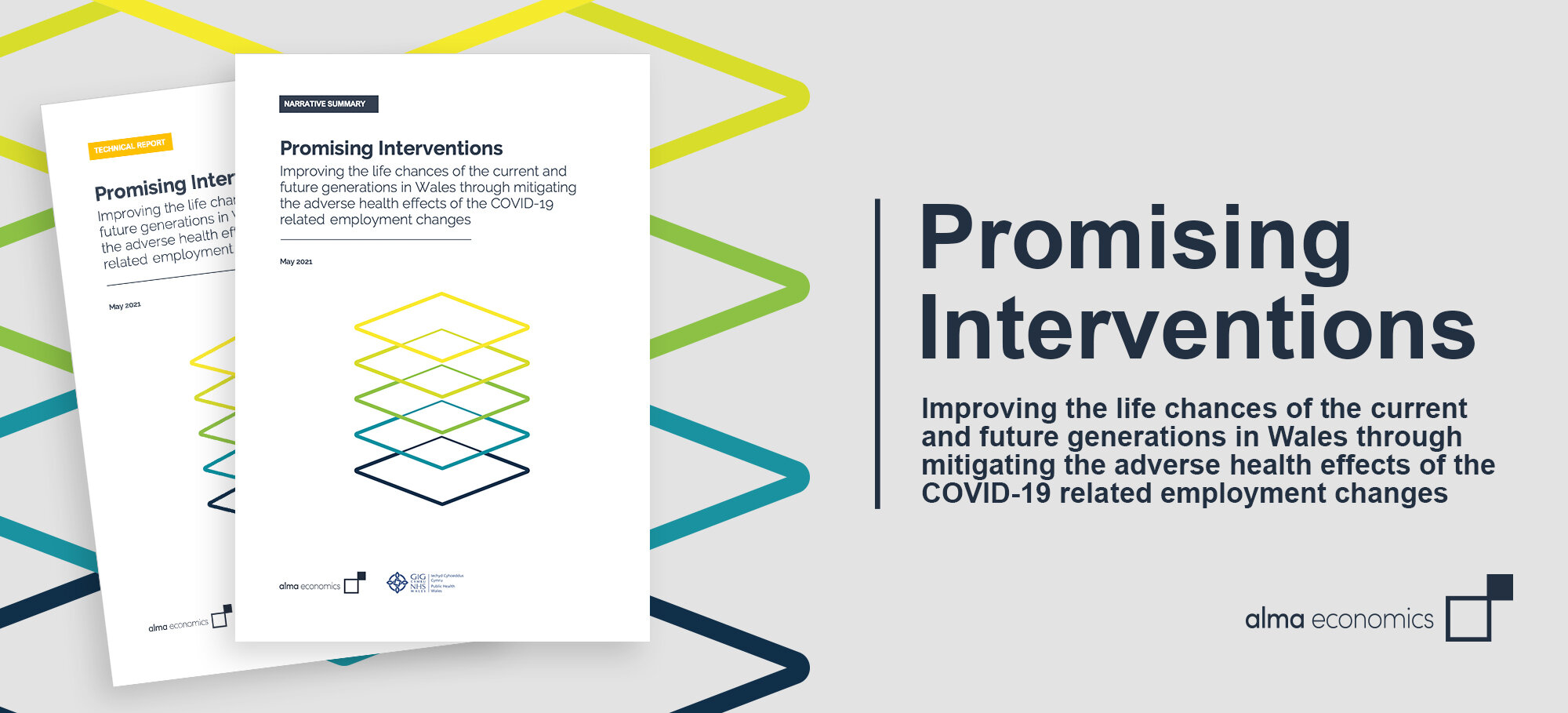Interventions to address the health impact of employment changes due to Covid-19
The Covid-19 pandemic and related policy measures have severely impacted the economy in Wales and internationally. In particular, significant changes have occurred in the labour market, resulting in unemployment, income insecurity, and uncertainty which could put the health of people in Wales at risk.
In this context, Public Health Wales commissioned Alma Economics to identify and describe interventions that could address the negative health impact of Covid-19 related employment changes. Our team developed a map summarising current evidence from the academic and grey literature, using a search protocol tailored to the specific research questions. This allowed for a transparent and replicable search of the literature.
Our research findings are summarised in an interactive online tool, which categorises the identified studies into 6 broad types of interventions and 6 types of health and health equity outcomes. The tool gives users the opportunity to explore the evidence of interest swiftly and identify gaps in the literature by using a wide range of filters. To find out more, visit this link where you can explore our interactive map.
Key findings extracted from the literature include:
A multi-dimensional policy framework specifically targeting vulnerable groups (such as families and people with weak labour market attachment) can improve employment outcomes and thus contribute to better health and wellbeing and reduce health inequity.
Current employment policies such as the Job Retention Scheme (a furlough scheme) and the Kickstart Scheme (a job creation programme for young people) can help mitigate the negative health effects of employment adversities caused by the pandemic.
Active labour market policies (such as training, employment subsidies, and job search assistance) could also improve physical and mental health for participants.
Policies under discussion, such as the shorter working week and the Universal Basic Income Scheme, are likely to have important implications for individual health and health equity outcomes.
Unemployment benefits are also promising in the sense that they can reduce health inequities through the provision of income security to vulnerable groups during economic downturns.
Family support policies (such as childcare services, family allowances and parental leave) complementing other measures addressing the Covid-19 related employment challenges are likely to protect children's health and development.
While our map suggests that most interventions can generate health benefits, there are also policies that are likely to result in worse health outcomes for people. In particular, employment protection legislation, minimum wages, and benefit sanctions can potentially harm unemployed people's health. Finally, flexible arrangements could result in adverse health outcomes for people in the gig economy.
As part of the project, we delivered a narrative summary which presents key findings from the evidence available, including a Theory of Change outlining the mechanisms through which employment interventions can generate health outcomes. We also delivered a technical report that clearly sets out our methodology, and a Research Extraction Sheet (RES) providing further information on the studies included in the map.
The reports and evidence map are published on the Public Health Wales website.
Our reports and interactive evidence map:

